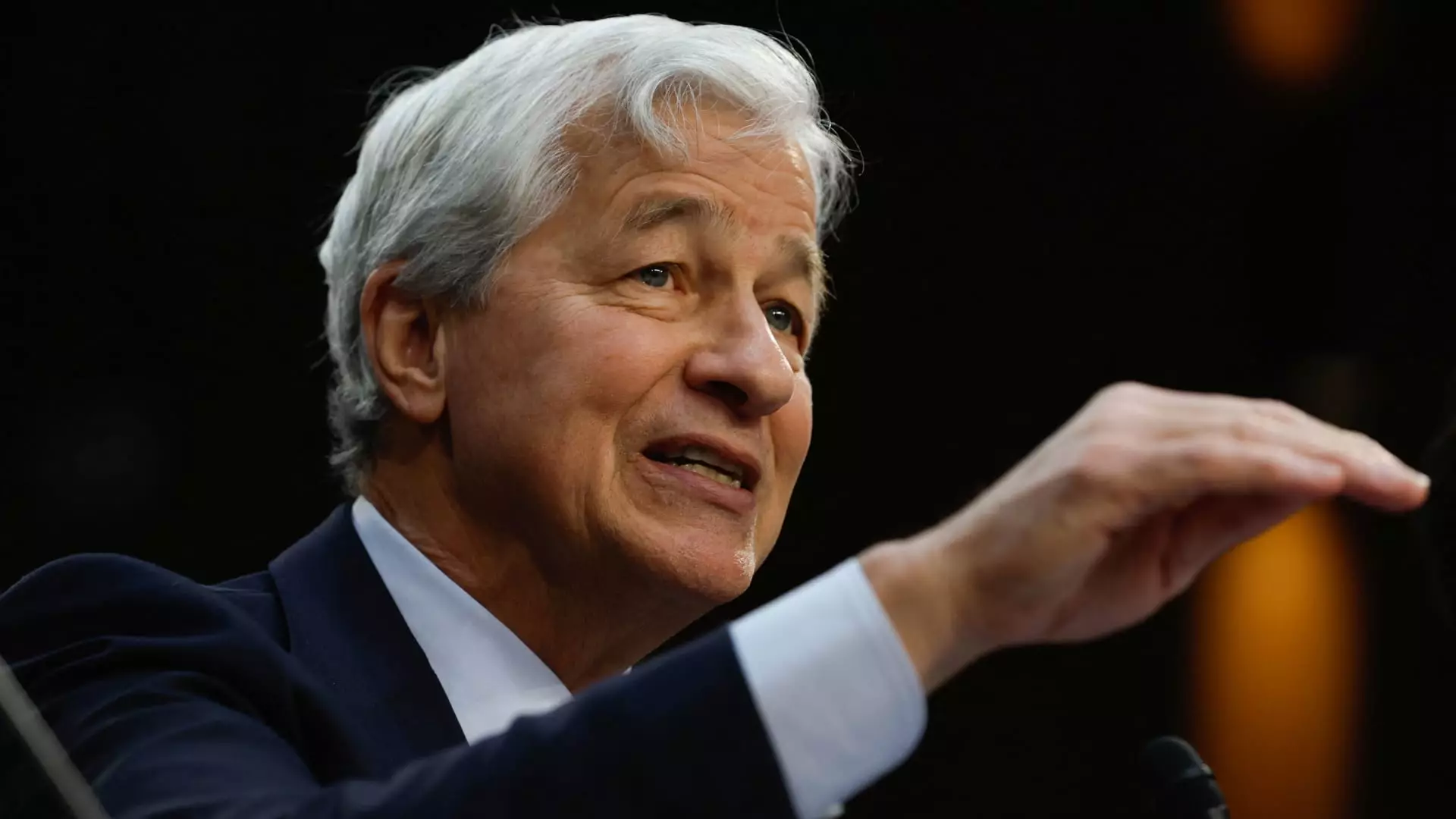In a shocking revelation during a recent conference call, JPMorgan Chase’s CEO, Jamie Dimon, shed light on the stark realities facing corporate America. With an alarming expectation that corporate earnings estimates will plummet, Dimon framed the scenario as a product of uncertainty within President Trump’s trade negotiations. In an environment where strategic planning typically underpins corporate success, the tremors from presidential policies are disrupting foundational elements, casting shadows over future earnings possibilities.
A Shift Toward Caution
Dimon’s analysis reflects a broader sentiment sweeping through corporate boardrooms, as reflected by JPMorgan’s CFO, Jeremy Barnum. While Barnum indicated that the bank’s initial guidance remains intact, it is clear that uncertainty reigns supreme. Many corporations have begun retracting their earnings guidance, worried about the looming repercussions of international trade disputes. This flight from clarity not only underscores the frustrations of corporate leaders but raises questions about the future viability of businesses when strategic foresight takes a backseat to ongoing volatility.
The Chilling Impact of Tariffs
Dimon’s comments also underscore a grim expectation: analysts are likely to downgrade their earnings outlook for the S&P 500 from an optimistic growth forecast to flat or even negative territory within the coming month. This sentiment finds its roots in the broader implications of tariffs and rising tensions between economic powerhouses like the U.S. and China. The once-bustling pathways of commerce are now fraught with barriers that induce anxiety among investors and corporate strategists alike, forcing a complete reevaluation of market tactics and investments.
A Cautionary Stance from Businesses
As companies prepare to release their earnings in the coming weeks, the environment is rife with uncertainty. Diem’s observations about corporate caution couldn’t ring more true. Companies with consumer exposure, such as Walmart and Delta, have already begun issuing tempered guidance, a sign of their vulnerability in a precarious trade landscape. Dimon articulated that this cautious stance isn’t solely about big deals; even middle-market firms are adopting a wait-and-see approach, stalling vital investments that could otherwise drive growth.
Short-Term Strategies in Uncertain Times
Barnum’s comments further reinforce this dynamic, citing a trend where businesses abandon long-term visions in favor of short-term adaptations—most notably in supply chain management. The prevailing policy uncertainty breeds a peculiar sense of urgency; firms are forced to optimize their operations for immediate stability instead of strategizing for robust future growth. Business leaders are stymied by the climate of unpredictability that challenges even the most prepared organizations to fixate on the present instead of future aspirations.
The Consumer Paradox
Interestingly, while corporate leaders express alarm, consumer behavior paints a somewhat different narrative. Recent data indicates that consumers remain resilient, spurred by fears that tariffs may lead to higher prices. In a counterintuitive twist, these rising concerns are prompting increased spending, a temporary solace in an otherwise chaotic economic landscape. This dichotomy highlights the complexities of the current economic climate; while corporations languish in uncertainty, consumers display a readiness to adapt, providing a thin silver lining amid darkening clouds.
With forecasts shifting and plans becoming increasingly precarious, one can only hope for a swift resolution to the trade discord that plagues corporate America. Until then, both businesses and consumers must navigate a convoluted path fraught with challenges that demand ingenuity and resilience.

Leave a Reply